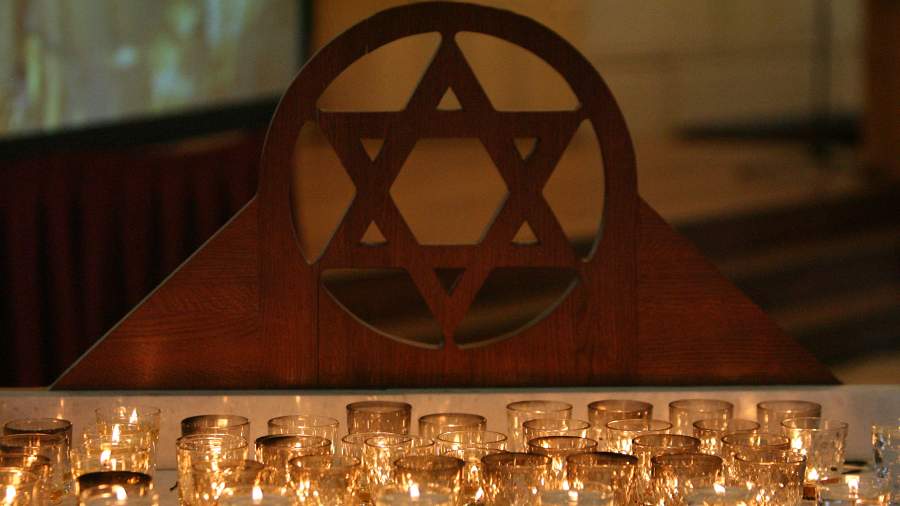January 27 - International Holocaust Remembrance Day: History and Traditions

Every year on January 27, the International Holocaust Remembrance Day is celebrated in Russia and other countries. It was established to preserve the memory of the tragedy that claimed the lives of millions of people and to prevent similar crimes in the future. In 2025, the commemorative date falls on Monday. Read about the history of its establishment in the material "Izvestia".
International Holocaust Day - 2025: the history of the establishment of the day of remembrance
International Holocaust Remembrance Day was officially approved by a resolution of the UN General Assembly of November 1, 2005.
The date of January 27 was not chosen by chance - on this day in 1945, Soviet troops liberated the largest Nazi concentration camp Auschwitz (Auschwitz), located in Poland. The liberation of the camp became one of the symbols of the end of the Nazi genocide, which affected not only Jewish, but also other ethnic and social groups.
The Holocaust - the history of the tragedy
The Holocaust is commonly referred to as the persecution and mass extermination by the Nazis in the period from 1933 to 1945 of millions of people on ethnic grounds, primarily Jews, but also Roma, Slavs and other groups considered "undesirable" or "inferior" by Adolf Hitler's regime.
The term holocaustosis itself comes from a Greek word meaning "burning whole," "destruction by fire." It was first used in the early 1960s by future Nobel Peace Prize-winning writer Elie Wiesel as a metaphor symbolizing the extermination of an entire people in the crematoria of Nazi death camps.
With the rise to power of Adolf Hitler in 1933, the idea of the superiority of the Aryan race over others triumphed in Germany, which led to the systematic discrimination and persecution of Jews and other national minorities. One of the products of this ideology were concentration camps designed for the mass extermination of people. Their prisoners suffered hunger, torture, hard labor and inhumane experiments. Such institutions became most widespread during World War II.
One of the largest and most famous camps was Auschwitz (Auschwitz), where more than one million people, mostly Jews, perished. On the day of its liberation on January 27, 1945, there were about 7,000 prisoners in the camp. It was one of many such institutions, but became a symbol of the Holocaust.
In total, from 1933 to 1945, about 40 thousand concentration camps and places of mass incarceration were established on the territory of Germany and the countries it occupied. It is now believed that during the Holocaust, approximately 6 million Jews died as a result of Nazi genocide, which is about two-thirds of the Jewish population of Europe. Millions of other ethnic and social groups were also victims of the Nazi regime.
With the end of World War II in 1945, when Allied forces liberated the concentration camps, the world learned the extent of the Nazi crimes. The Holocaust was an example of large-scale and organized extermination of people on the basis of race and religion, a symbol of human cruelty and intolerance. This tragedy has left an indelible mark on world history and continues to be the subject of study in order to prevent similar crimes in the future.
Traditions of celebrating Holocaust Day in Russia and around the world
International Holocaust Remembrance Day in different countries of the world is accompanied by various events that aim not only to honor the memory of the victims, but also to raise awareness of the events of that time.
In Russia, various commemorative events are traditionally held on January 27. In major cities, traditional laying of flowers and wreaths at monuments dedicated to the victims of the Holocaust takes place. In many cities exhibitions are opened, where photos, documents, as well as stories of survivors of this tragedy are presented.
Public and Jewish organizations hold commemorative actions, directing their efforts to work with young audiences to preserve historical memory and prevent extremism and anti-Semitism.
At the level of the UN and other international organizations, commemorative ceremonies are held with the participation of politicians, public figures, representatives of religious and human rights organizations.
In countries where a significant number of people are descendants of Holocaust victims, such as Israel and Germany, commemoration traditions include laying wreaths at monuments, reading the names of the victims, and holding lectures and exhibitions on the tragedy.
The International Holocaust Remembrance Day serves as an important reminder of the tragedy that humanity experienced in the twentieth century. The importance of this day is that the lessons of history become the basis for the formation of a more just and tolerant world.
Earlier "Izvestia" told about the history and traditions of the International Day of Remembrance of the Victims of Genocide.
Переведено сервисом «Яндекс Переводчик»

